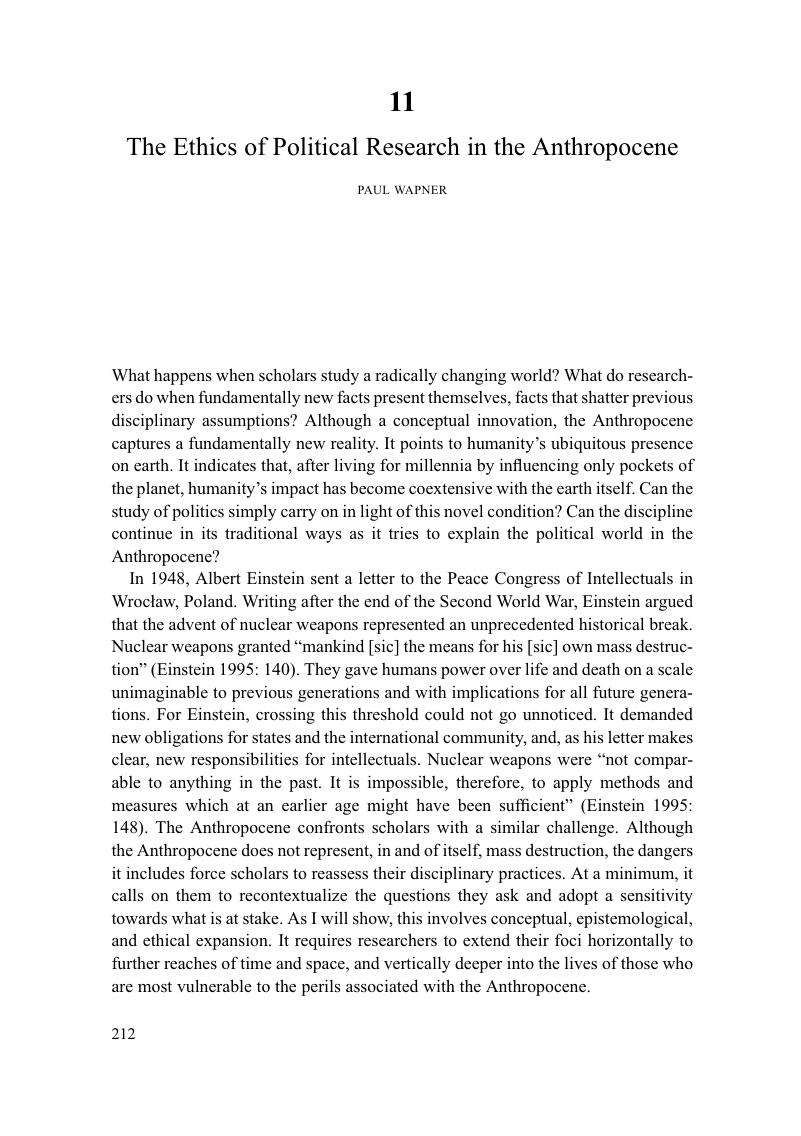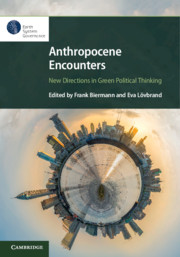Book contents
- Anthropocene Encounters: New Directions in Green Political Thinking
- Series page
- Anthropocene Encounters
- Copyright page
- Contents
- Figures
- Contributors
- Acknowledgments
- 1 Encountering the “Anthropocene”: Setting the Scene
- Part I The Conceptual Politics of the Anthropocene: Science, Philosophy, and Culture
- Part II Key Concepts and the Anthropocene: A Reconsideration
- Part III The Practices of Political Study in the Anthropocene
- 9 The “Good Anthropocene” and Green Political Theory: Rethinking Environmentalism, Resisting Eco-modernism
- 10 Coproducing Knowledge and Politics of the Anthropocene: The Case of the Future Earth Program
- 11 The Ethics of Political Research in the Anthropocene
- 12 Epilogue: Continuity and Change in the Anthropocene
- Index
- References
11 - The Ethics of Political Research in the Anthropocene
from Part III - The Practices of Political Study in the Anthropocene
Published online by Cambridge University Press: 21 January 2019
- Anthropocene Encounters: New Directions in Green Political Thinking
- Series page
- Anthropocene Encounters
- Copyright page
- Contents
- Figures
- Contributors
- Acknowledgments
- 1 Encountering the “Anthropocene”: Setting the Scene
- Part I The Conceptual Politics of the Anthropocene: Science, Philosophy, and Culture
- Part II Key Concepts and the Anthropocene: A Reconsideration
- Part III The Practices of Political Study in the Anthropocene
- 9 The “Good Anthropocene” and Green Political Theory: Rethinking Environmentalism, Resisting Eco-modernism
- 10 Coproducing Knowledge and Politics of the Anthropocene: The Case of the Future Earth Program
- 11 The Ethics of Political Research in the Anthropocene
- 12 Epilogue: Continuity and Change in the Anthropocene
- Index
- References
Summary

- Type
- Chapter
- Information
- Publisher: Cambridge University PressPrint publication year: 2019
References
- 1
- Cited by



